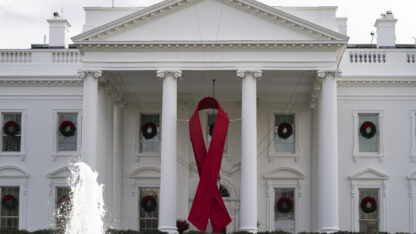Before the COVID-19 pandemic, in 2019, under the Trump administration, agencies across the U.S. Department of Health and Human Services coordinated an initiative to end the HIV epidemic in the United States by 2030.
According to the Centers for Disease Control and Prevention, the goals of Ending the HIV Epidemic (EHE) include:
- Reducing new HIV infections in the United States by 75% by 2025 and by 90% by 2030
- Advancing health equity by increasing key HIV prevention and treatment strategies
For Wednesday’s special edition of “Closer Look, ” show host Rose Scott talked with several guests about new research that reveals the U.S. may not be on track to meet its national goal.
First, Scott talked with Vincent Guilamo-Ramos, the dean of the Duke School of Nursing and the director of the Center for Latino Adolescent and Family Health, about the current state of the HIV epidemic, the population groups most impacted by the virus and his research that outlines the gaps in fighting the disease.
Dr. Melanie Thompson, an Atlanta-based HIV researcher and provider, then talked about Fulton, DeKalb, Gwinnett and Cobb Counties being included in the national EHE effort and explained how some counties such as Clayton County were left out. Thompson also talked the ongoing need for more funding to fight HIV, the need for more HIV healthcare workers and the importance of destigmatizing the virus and increasing testing.








